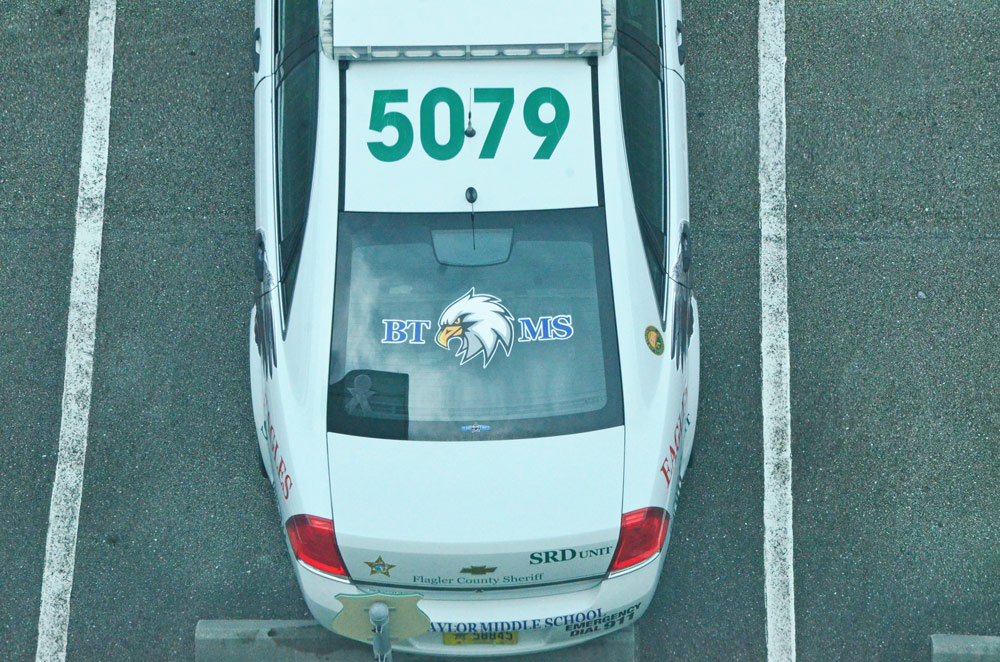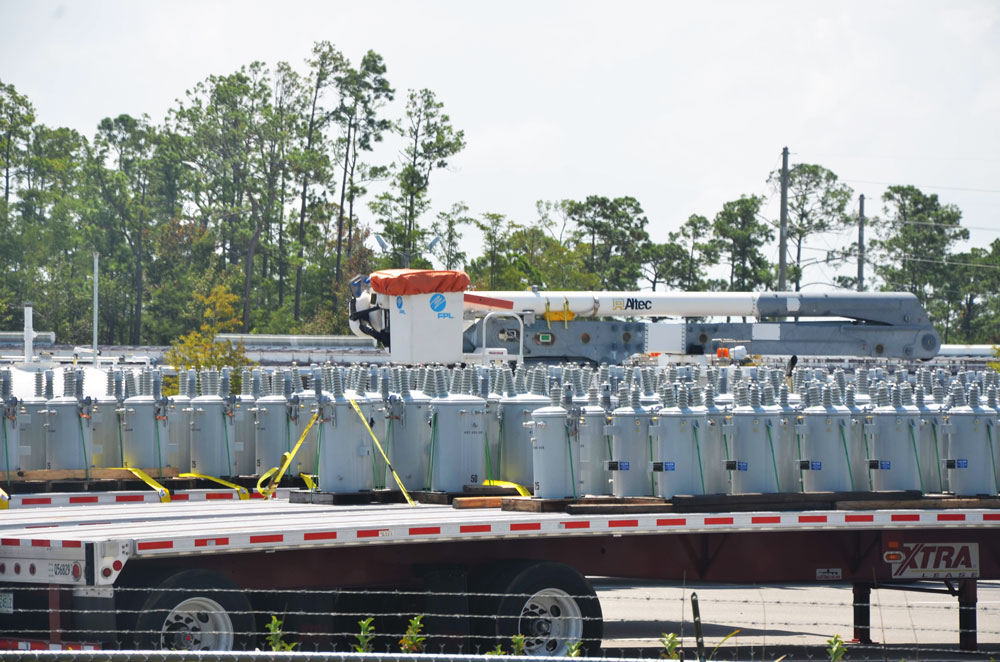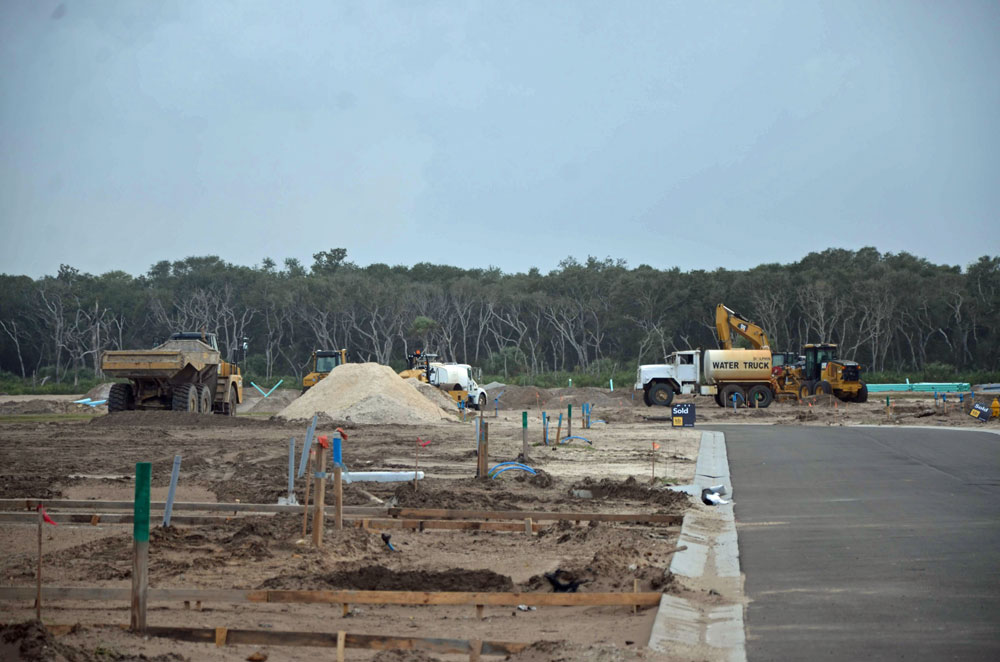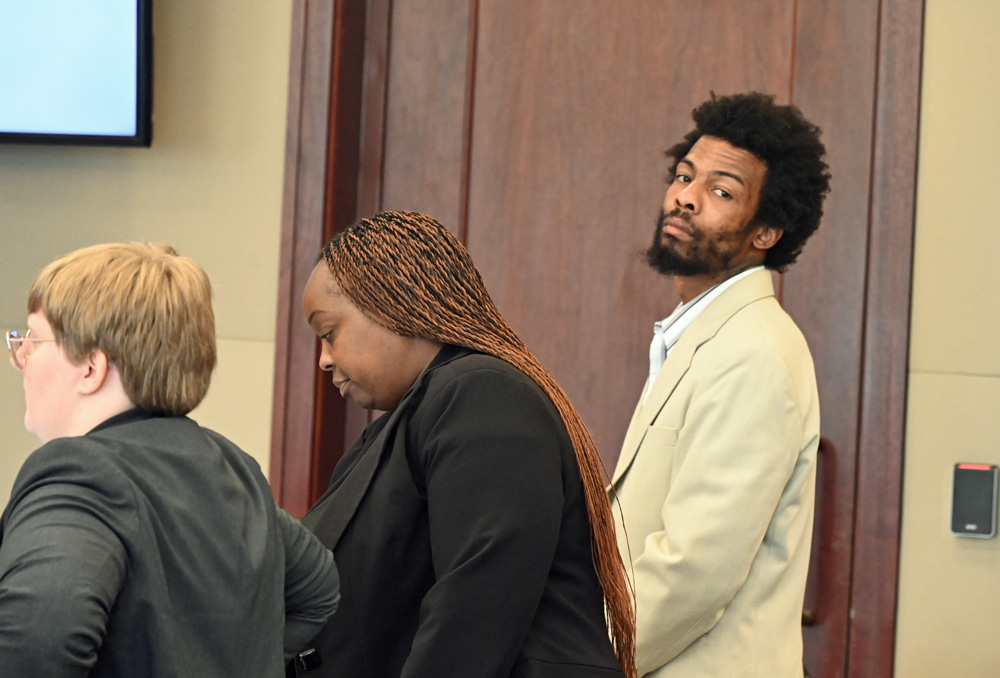Just hours after the Flagler County School Board bemoaned
sharply leaner times
as enrollment drops, state dollars drop with it and federal dollars are being withheld, the board voted to add one more school resource deputy to its ranks even though the deputy will not improve school safety or save money.
A few weeks ago Flagler County School Board members had been clearly skeptical about a proposal to add a “floater” sheriff’s school resource deputy to the 12 it already pays for.
On Tuesday, the board voted 4-1 to approve the proposal. It did so even though the additional deputy will increase the district’s SRD budget by 20 percent, even though–according to the district’s own safety coordinator–it will neither increase safety coverage nor save the district money overall, when overtime is calculated, which had been the original rationale for the added deputy, and even though the board is complaining that its state allocation of school safety dollars is not keeping up with costs,
before
the additional deputy was added.
“I know operationally, they’ll look at this and try to determine the best way possible to use this floater,” Board member Derek Barrs, a former SRD, said. “We need to evaluate this, I think, for a year, to see what this looks like.” The floater, in other words, is not a permanent addition but will be evaluated like a pilot program this year. “We need to see what that’s going to look like for planning purposes with our financial department, and then just evaluate the overall successes,” Barrs said.
The cost increase is another opening for what at least two board members–Christy Chong and Will Furry–have been pushing for over the past two years: a “guardian” program that would arm civilians as security in schools. “As costs increase I think it’s another reason to also consider, in the future, a guardian program, and how we would work that in as well,” Chong said.
The cost increase is mostly self-inflicted, however–which may just be the board’s aim as it forces a hand on future “guardians.”
In 2020-21,
the district received $882,000
in state Safe Schools money. Its contract with the sheriff, including crossing guards (but not overtime),
was $851,500
.
This coming year,
it will receive $1.34 million
in Safe Schools money, $310,000 less than its contract with the sheriff. The deficit is almost entirely due to the board’s hiring of additional SRDs, not to diminishing Safe Schools money.
The “floater” is the second SRD the board is adding to the ranks in the last three years despite claiming poverty in state “Safe School” dollars and despite falling enrollment. Of the 12 SRDs, one deputy is fully paid for by Palm Coast government. The County Commission pays 50 percent of the salaries of nine of the SRDs, but not their overtime costs, which fall on the district.
In the 2023-24 school year the board had a $1.19 million contract with the Sheriff’s Office. It approved a $1.65 million contract on Tuesday, a 39 percent increase in two years. Most of that increase is disproportionately borne by the school district, not the County Commission, because the addition of the two extra deputies–the “floater” this year and the deputy added two years ago to cover the district’s alternative school–are entirely paid for by the district.
District Safety Coordinator David Bossardet and the Sheriff’s Chief Mark Srobridge had proposed the “floater” deputy as a way to cut down on overtime costs when they presented the SRD budget earlier this month. Every time one of the SRDs takes time off or is in training, the district must pay the replacement’s overtime costs. Every time the district hires security through the Sheriff’s Office, at sports events or other extracurricular activities, the district must pay that overtime. The floater is intended to eliminate most of those overtime costs.
The
numbers Bossardet provided
the board in an email this week show that the “floater” will not be a saving, but a net increase in costs. Bosssardet crunched 2024 data, when the overtime rate was $73 an hour (compared to $80 for the coming year). The “floater” costs an additional $154,600. If that deputy were to cover all SRD absences and 121 extracurricular events, the district would still face an extra cost of $40,000 that it would not face if it continued paying overtime on the current model. The calculation also assumes that the “floater” could cover that many extracurriculars, even though many overlap, and it does not account for the “floater”’s own time off, which would incur overtime costs. (Bossardet’s information was not posted on the district’s website with other supporting documents alongside the new contract.)
“I cautioned them, we’re working on a rough estimate,” Bossardet said of the numbers.
Board Member Janie Ruddy was the sole dissent in the vote. Ruddy says sheriff’s deputies are “hands down” the best option for school security, rather than a “guardian” model. She was intrigued by the “floater” approach, but only if it made financial sense.
“I wanted to wait for that threshold where the cost of the SRD floater would begin to save us money,” she said. Instead, the payout in the coming year will be higher.
Ruddy is also concerned about increasing built-in costs. The sheriff is absorbing sharply higher health insurance and retirement costs, which this year increased at a rate about 15 times that of the increase in Safe Schools money. “So I would love to see an agreement where essentially the Sheriff’s Office and the school district agree to keep the cost increases in tandem with what’s provided by the state, and to me that would provide an added benefit in having the law enforcement community help advocate for those funding programs.”
Ruddy is the last (and only) Democrat serving on a major local elected board, making her vote for fiscal prudence oddly ironic on Tuesday, as the four Republicans voted for more spending despite the absence of data justifying it.












